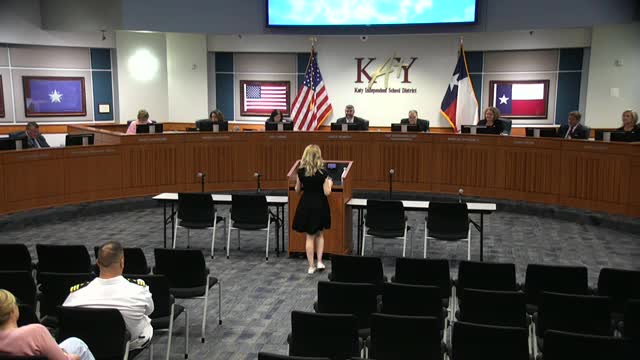Article not found
This article is no longer available. But don't worry—we've gathered other articles that discuss the same topic.
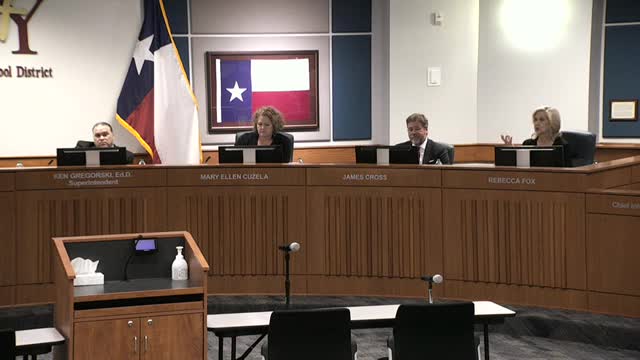
KATY ISD staff highlight Outdoor Learning Center’s hands‑on curriculum, wide reach for fourth‑grade science
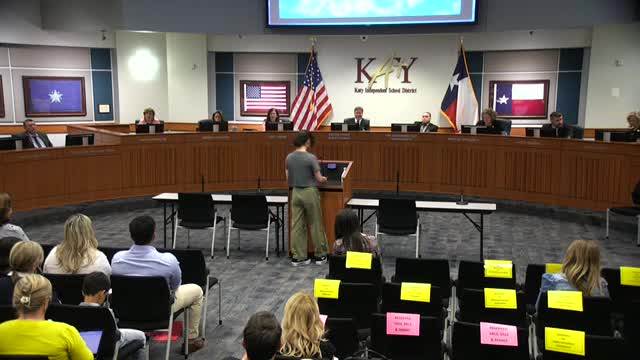
Students and community members urge KATY ISD board to reverse gender-fluidity policy and end book bans; parents raise safety and transparency concerns
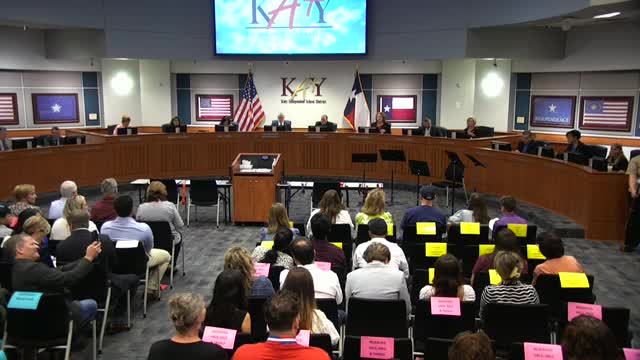
KATY ISD trustees elect Lance Redmond president, Rebecca Fox vice president; Champagne chosen secretary
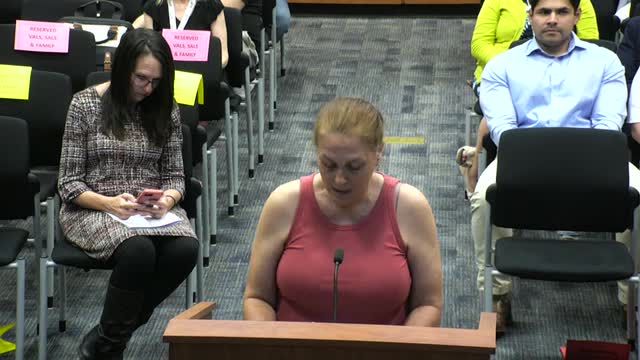
KATY ISD JROTC instructor describes program growth, student leadership and community service
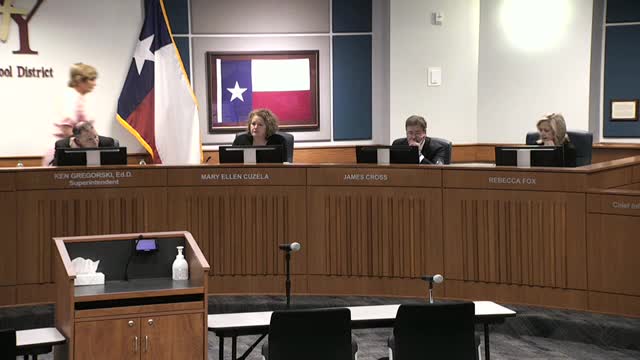
KATY ISD health plan posts multi‑year losses; district seeks new plan administration and pharmacy bids
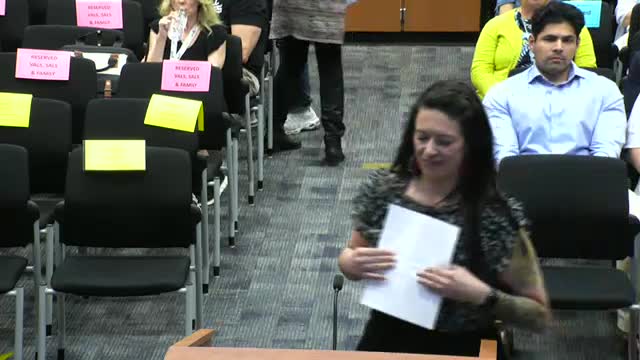
Speakers ask KATY ISD to excuse college/MEPS absences, provide dyscalculia training and recognize Eid al‑Fitr
